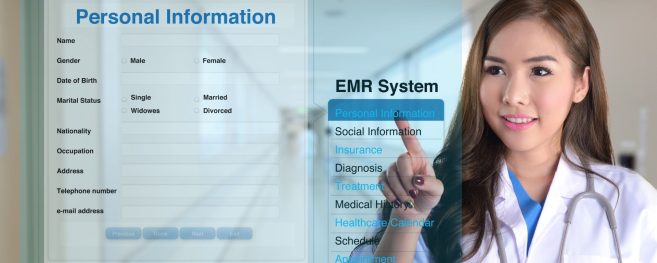What are EMRs (Electronic Medical Records)?

Electronic medical records (EMRs) have revolutionized the healthcare industry, making it easier than ever for doctors to keep track of their patient’s health history. But did you know that EMRs can also be used to boost your practice?
The benefits are clear: increased efficiency, better patient care, and more comprehensive reporting. On the other hand, EHR or Electronic Health Records are electronic versions of paper records and provide a more comprehensive view of the patient’s health history.
Read more: EMR vs. EHR: How Do These Two Terms Differ?
Here, we will discuss how electronic medical records can help improve patient care and grow your business. We’ll also provide a few tips on how to get started with EMR integration. So don’t wait – read on to learn more!
What Is EMR?
Electronic Medical Records (EMR) is a system that allows healthcare providers to store and manage patient data electronically. This technology provides an efficient means of recording, organizing, and tracking medical information, including the patient’s health history and related treatments. EMR systems are becoming increasingly popular because they allow for improved communication between all care team members, resulting in better patient care and outcomes.
How To Use EMR for Your Practice?
Electronic Medical Records (EMR) are electronic records of patient health information that medical professionals can access for various purposes. This information includes patient demographics, insurance plans, and clinical notes. Here are some methods to use EMRs to boost your practice.
Improve Patient Care
EMRs can help medical professionals quickly view patient health history and records, update medication lists, create comprehensive care plans and track immunizations. This allows healthcare providers to provide a higher quality of personalized care with more informed decisions.
Streamline the Billing and Payment Process
By utilizing an EMR, healthcare professionals can easily access patient data to ensure billing and payment details accuracy. Automated systems that work with EMRs can help track payments for easier reconciliation. This reduces administrative duties and improves workflow.
Enhance Collaboration
An EMR system allows medical professionals to access and share patient data easily. This enables faster communication between physicians to optimize the delivery of healthcare services. For example, specialists can quickly access patient data to provide more accurate and timely diagnoses.
Improve Data Security
EMR systems have built-in security features that protect medical information from unauthorized access or data loss, which is essential for maintaining HIPAA compliance. Healthcare providers using an EMR system are less likely to experience data breaches.
HIPAA is the acronym for Health Insurance Portability and Accountability Act. This act sets the standard for protecting sensitive patient data. EMRs allow healthcare providers to easily access and share essential medical information with colleagues for better collaboration and improved patient care. It also helps streamline billing and payment processes while protecting data security. Implementing an EMR system can provide several benefits that will help boost your practice.
Provide Better Insights into Business
The data gathered by the EMR system can be used to improve administrative processes, better define patient outcomes, and even create financial reports that give an honest view of the financial health of your business.
Electronic Medical Records (EMRs) have revolutionized how medical practices store, track, and access patient data. With EMRs, healthcare providers can quickly and securely access patient records from anywhere with internet access. Contact Sequence Health for EMR integration in your healthcare practice.





